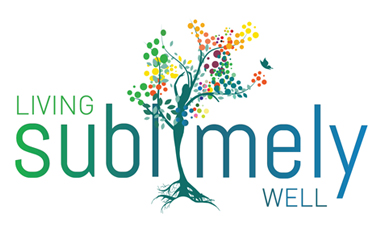 Nurse Cathy was sitting in the break room early one Saturday, waiting for report. She got to work extra early since this was her weekend to round with the weekend attending. She wanted time to review the charts, check in with the night shift staff, and get something quick to eat before starting her shift.
Nurse Cathy was sitting in the break room early one Saturday, waiting for report. She got to work extra early since this was her weekend to round with the weekend attending. She wanted time to review the charts, check in with the night shift staff, and get something quick to eat before starting her shift.
As she was reading progress notes from the previous day, the charge nurse came in and said: “You have to go down to the ED. We need you to work there this weekend. We’ve had some staffing issues and Jim is coming in for his on-call. He’ll be rounding with the doctors today.”
“What?!? That’s not fair! I’ve been with the physician team all week! I know these patents!! I am here… getting prepped now. Why can’t Jim go down to the ED? I cannot STAND this place!” Cathy’s eyes welled up into tears as she slammed her chair against the wall. She grabbed her lunch bag from the fridge and stormed out of the break room, on her way to the ED.
*****
 Sitting down to write this blog post, I looked up the definition of resilience. According to the Merriam-Webster Dictionary, resilience is:
Sitting down to write this blog post, I looked up the definition of resilience. According to the Merriam-Webster Dictionary, resilience is:
-
the ability to become strong, healthy, or successful again after something bad happens
-
the ability of something to return to its original shape after it has been pulled, stretched, pressed, bent, etc.
Reading that, I thought to myself- resilient nurses don’t act the way the nurse did in the scenario above. Cathy heard news from the charge nurse and immediately reacted. She lashed out in an angry and unreasonable way. Sure, there may have been many things that led up to Cathy’s outburst… but this type of reaction is not a healthy one of resilience.
Think about the profession of nursing. Actually- let’s expand that even further. Think about the healthcare system as a whole. Always evolving, shifting. Fluid and constant change. Whether it’s a new piece of technology or a change in management. It could be a revised policy or a research protocol to follow.
As a nurse, when you report to your shift, you’ve got to expect some element of surprise.
*****
 Why is resilience such an important topic in nursing? Well, nurses who are not resilient put themselves in danger. According to an article in Nurse Leader by Stephanie B. Turner, EdD, MSN, RN, an assistant professor at Capstone College of Nursing, being unable to cope put nurses at greater risk for unhealthy levels of stress. When nurses are faced with stressful environments they are at greater risk for decreased job satisfaction, burnout, exhaustion, and feelings of lack related to personal accomplishment. If a nurse is unable to bounce back in a healthy way after something challenging happens, the consequences can be devastating.
Why is resilience such an important topic in nursing? Well, nurses who are not resilient put themselves in danger. According to an article in Nurse Leader by Stephanie B. Turner, EdD, MSN, RN, an assistant professor at Capstone College of Nursing, being unable to cope put nurses at greater risk for unhealthy levels of stress. When nurses are faced with stressful environments they are at greater risk for decreased job satisfaction, burnout, exhaustion, and feelings of lack related to personal accomplishment. If a nurse is unable to bounce back in a healthy way after something challenging happens, the consequences can be devastating.
On the other hand, nurses who experience a tense experience and have these healthy coping skills (which we will get to in a moment)- they are much more likely to return to a state of equilibrium in a faster, easier way. Doing some research on nurse resilience and the strategies that can help nurses cope, I came across a great resource. Diane Sieg, RN, CYT, CSP, a former emergency room nurse turned speaker, author, mindfulness coach, and yoga teacher, wrote an article outlining strategies for resilient nurses. Diane’s article introduces seven qualities of mindfulness that highly resilient nurses practice.
OK- so we’ve learned a few things thus far:
- Healthcare is an ever-shifting, ever-changing environment.
- The profession of nursing can also be in a state of constant flux- providing both good and bad experiences for nurses.
- Nurses are presented with no two shifts that are the same.
- A resilient nurse practices certain coping strategies that help them deal with stress.
*****
So, let’s look back at our scenario above and reflect on how Nurse Cathy could have reacted differently.
Sure, Cathy got to work early and was involved in reading charts and preparing for her shift. When the charge nurse came in and burst out the news that Cathy would be floated to the ED- Cathy had a choice. She could react as she did- pissed off and miserable at the change. Or she could have taken time to pause, take a deep breath in and out, and engage in dialogue about the situation.
How could Cathy have done that? What strategies could she use to help her navigate this unpleasant news in the moment?
[Tweet “Here are 3 Tips for Reacting in a Resilient Way”]
- Breathe. First off, in any hectic or high tension situation, remember to breathe. I notice this all of the time. When something has upset me (I am thinking back to an ex-neighbor who used to scream and yell at me any time I got to my home) I would find myself holding my breath. So much so that after I had left the situation, I was literally out of breath. So- the first thing you want to do is notice your breath. Before you react. Before you yell or lash out or say something you regret- take a deep breath in and out of the nose. This very act will slow you down and help you calm, if even a little bit. Take a few breaths before reacting at all. You’ll be super glad that you do in the end.
- Inquire. An important point to remember is that everyone at work is in the same high stress situations. It’s not just you that is being targetted with the unpleasant requests. Think about all of the other staff on the unit and the compromises they have to make to ensure a safe shift. Going back to my own time spent as a psychiatric nurse, I know there were days when we were short staffed. But it was crucial to us that the charge nurse stay out of the numbers. S0- each floor nurse would step up and take just one more patient, when we had a call out, so that the charge nurse stayed free of patient duties and able to help the workflow of the entire nursing staff. When a situation arises that you view as unfair or harsh, have a conversation. Ask if you can brainstorm another way. Seek solutions with your nursing colleagues. Instead of blowing up in the moment, think about if you can have a quick discussion to solve the problems for all.
- Re-frame. So in the scenario above, I am sure some of you reading are thinking to yourselves: “Why did that charge nurse just burst in with that news? Couldn’t they have approached it in a more professional way?” And while I agree, I will tell you that we can never know what another person is thinking, feeling, or experiencing. On top of that- we have no control over another person’s behavior. We can only be accountable for ourselves. So moment to moment, as you go about your nursing shift, can you take a moment to quietly re-frame? Instead of thinking to yourself that work is unfair and your entire unit has it ‘out for you’- why not view the challenges as opportunity? In the above scenario, one way to re-frame the situation would be to see the request to go down to the ED as an honor. The nursing staff on your unit has such high views of you that you are the one they chose to go work in another area. I know this is a stretch… and some of you reading may be thinking, ‘Yeah, right’… but this takes time and practice. When we have the ability to re-frame our experiences we approach life (and work) in a much more appreciative way.
What did we miss? I’d love to hear how you increase your capacity for resilience. Leave a stress-reducing tip in the comments below. Thanks for reading!
About the Author: As a keynote speaker, bestselling author and virtual conference host, Elizabeth partners with hospitals, organizations, associations, and nursing groups to help transform the field of nursing from the inside out. During the National Nurse’s Week online conference, ‘The Art of Nursing‘, Elizabeth supports nurses in achieving professional goals of continued learning and development. Click here to find out more about how The Art of Nursing appreciates and celebrates our profession in a meaningful way.

This was good information and for the most part I agree. However, I feel that as a nurse leader that it is my responsibility to approach changes (particularly in staffing) by providing the affected nurse with information regarding the need is at the time. My experience is that if I take the time to explain the “whys” my staff benefits as much as I do. Nurses are educators, not only to our patients but to each other also.
Wonderful points, Betty. I appreciate you adding this point. It makes total sense that we need to provide the ‘why’ behind the ‘what’. I am so glad that there are nurse leaders and educators out there just like you. Thanks for bringing this comment to the forefront. Enjoy the day!
All good recommendations; however, when a hospital environment initiates LARGE changes in rapid succession, I believe there is a point when a nurse depletes his/her ability to be resilient– and as you said, exhaustion, burnout, apathy, and negativity can overwhelm the nurse–both personally and professionally.
Hello there! Thank you so much for your comments, Ren. I appreciate your point of view and do agree… when there is rapid shifts, stress can certainly follow. That’s why it is SUPER imperative that each individual nurse do what they need to take care of themselves both professionally and personally. While I have many recommendations for this, I’d love to hear from others reading… what tips would you share to help a nurse remain resilient even in the most chaotic of times? Again, thanks for the comment, Ren.
I think when the chaos is unrelenting and there is no period of normalcy that stress can manifest mentally, physically, and emotionally. Change is difficult for nearly everyone– when constant upheaval becomes the norm– call-offs, illness, physical/verbal violence can escalate.
Agreed. Thanks for the comment. Some things that may help: getting into a supportive group, taking time out of the workplace, looking for laughter, or making a change (if need be). So for example, if the place of work is just too much… seriously considering finding a work environment that is more conducive to the individual’s needs. I can tell you I have been in the stress of it all… hence this blog and the work I do now. So I am not just offering suggestions that don’t work. Thank you for bringing this to our attention and being the voice to encourage the change that is needed!!
When given lemons, make lemonade. The right attitude can bring reward down the road. Sometimes managers ask those they trust the most to step up. Our response to stress affects patient care, so make it a positive one. The resilient nurse becomes a respected resource to others. After 23 years, this philosophy has treated me well. We are nothing if not flexible!
There you go, Vonda! Wonderfully said. I couldn’t agree more. Thank you for adding your experiences to this discussion. Great philosophy. I hope that in your own way… by acting with flexibility… you are inspiring other nurses around you to do the same. Thanks for sharing.
Provocative post with great tips and comments. I’d like to see Cathy follow the 3 tips you offer, Elizabeth and also consider how she might remain professional and practice her assertiveness while being open to seeking a compromise and following the managers request. I’m thinking something like this:
Cathy: “I want to cooperate and do what’s best for the unit, our patients and myself. I’ve prepared for rounds this morning and have some concerns about a couple of patients that I wanted to talk with the team about. I also find rounds to be a great learning opportunity. Would it be possible for me to go down to the ED after rounds? Jim could round too and he’d have a chance to ask questions”.
Would love to hear your thoughts on this approach!
Oh, I knew I could count on you, Beth, to share an example of best practice for effective communication. Thank you so much for sharing this response. It is helpful for me and others reading this blog to see the actual verbiage that would be more effective. Thanks for your comments!
Thanks, Elizabeth! You know I love looking for that 3rd door where we can all have ownership and contribute to healthier selves, workplaces, and of course, safer care! I had to think it through and the tips you offer would have helped me stay centered and curious. And if I couldn’t have come up with it then, I could have followed up with my manager to work together to have a different outcome for future situations.
Great conversation everyone too!
I agree that the big thing missing in their exchange was the rationale, on both sides, AND more importantly, what’s best for the patients of both areas… continuity of care, efficiency, and development of staff members should all be considered. Also missing in the decision process is a “system of fairness”. Tracking floats to another unit results in equal distribution of what could be considered a more- or less- desirable assignment when other factors are equal.
“Zooming out” helps one to reframe the experience and see one’s contribution to patient care, and unit operations. Lastly, self-nourishment! Because despite your best intentions, you may come out of any shift feeling angry, tattered, or defeated. People are sometimes unfair, disrespectful, and mean. Try not to take it personally! It always helps me to return to my root cause for being a nurse. It may sound odd, but I like to study nursing topics, to improve myself… the only person we can control, right? I reclaim my “power” by doing yoga, walking outside, venting/laughing with a good friend, and snuggling the kids.
Oh, I LOVE these tips. Thank you so much for sharing. I agree that coming to work on an empty stomach creates increased irritability. Great additions to the strategies. Thank you for coming by and sharing your thoughts.
It sounds like such a great alternative to knee jerk behavior but as we know its never black and white. Its important to recognize toxic environments. Sometimes all the meditation and mindfulness in the world will not fix a toxic environment.
Mindfulness may provide tbe individual clarity needed to make changes, including a new job. Its definitely good practice to be mindful in all aspects of life, but real world non stop emergencies require more than breathing through it. There are so many areas and layers that can improve nursing burnout. Mindfulness is a positive step in the process, but unfortunately not the complete fix.
Excellent point, Shaun. I say that all of the time when I teach the Nursing from Within concept (which includes mindfulness). We may come to realize, with our focused awareness, that the environment we find ourselves in is anything but perfect. What’s great about that is it then provides us the opportunity to make a change… just as you shared here. Thanks for coming by and sharing your thoughts on the post. Much appreciated!
As a Graduate nurse I found it surprising how much my stress level affected my team mates and their communication with me. By managing stress before a shift and by adjusting my language and questions to show that I was calmly questioning for understanding and not challenging them, I received in return a welcoming to the team and a trust with my workload.
In this situation, I would consider what influenced the charge nurse? A stressful shift and bad news to deliver? An expectation that I would react poorly based on prior experience? We are all people-focussed and would operate with care under ideal circumstances, so what can I do to improve this circumstance and foster two-way communication with my colleague?
Calm questions and a willingness to assist workload should improve communication in this situation and allow two-way understanding in a future scenario.
Sara
Great points, Sara. I am so glad that in your experience, trying these tactics, has provided effective. Thank you for sharing them here so that other nurses have another option to consider. I appreciate your comment!
Resilience can be learned through mentoring and leaders (successful ones) role model how to manage the multiple demands of a complex, ever-changing healthcare environment. For any team to function successfully they need ground rules and shared values certainly the path includes mindfulness, attention to details, safety oriented, and strive to balance work and life.
Working overtime is one factor that can affect one’s resiliency–fatigue needs to be recognized as an outcome when we pile on workload demands.
Excellent insights and additional thoughts to this topic. Thank you for sharing, Paula.